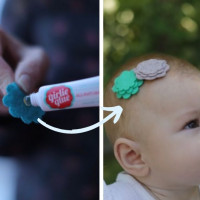Perhaps you’ve noticed that your loved one is coming home later at night, with a pocket full of scratchies. Perhaps there have been an increasing number of withdrawals from the bank account, and an increasing number of visits to the pokies. Perhaps your loved one is irritable, has mood swings, and is touchy when confronted about being out of control with money.
These can all be preliminary signs of gambling addiction.
Gambling addiction is not something which only happens to others on the news—like all addiction, it occurs in secrecy and with denial.
There is a chance it could be growing right under your nose (but you haven’t picked up on the clues).
There are obvious indicators like spending all night at the casino.
Gambling activities manifest in a variety of ways, such as gaming (pokies, cards), betting (racing, sports), lotteries (lotto, scratchies), or speculation (“deals”, stocks and shares).
Emerging also are apps on smart phones and tablets creating access to live betting websites that bring the opportunity and availability every moment of every day.
Here are ten signs that your loved one may have an addiction to gambling:
- They find themselves reliving past gambling experiences, planning their next gambling activities, or thinking about ways to get money to gamble.
- They gamble with increasing amounts of money and risk to feel excitement.
- They become restless and/or irritable when attempting to cut down or stop gambling.
- They gamble as a way to escape problems, deal with feelings of guilt, anger, anxiety, or depression.
- They return to gambling activities in order to win back or chase after losses.
- They lie about, or conceal the extent of their involvement in gambling activities to friends, family, employers, doctors, and act defensive when someone comments about their gambling.
- They participate in illegal activities (e.g. forgery, fraud or theft) in order to finance gambling.
- They rely on other people to provide money, to “bail them out”, of desperate financial situations caused by gambling.
- They have jeopardised or lost an important relationship, job, or career opportunity because of gambling.
- They or a loved one has tried to control, limit, or stop gambling, but were not able to with lasting success.
If you have answered yes to more than 3 questions, your loved one may have a problem with gambling.
Gambling impacts the whole family, and it drives a cycle of despair that is difficult to break out of.
Just like substance addiction, people experience compulsive cravings for gambling activities for temporary relief.
As the addiction develops, your loved one may continue to gamble in spite of the resulting negative consequences such as significant financial problems, relationship difficulties, or legal issues.
People who may have a problem with gambling are also more likely to have mood disorders such as anxiety and depression, ADHD and compulsive sexual behaviour.
But there is always hope—it is never too late to treat gambling addiction. The best chance for recovery is to seek professional help.
Early intervention and preventative education is vital in addressing Australia’s increasing problem with gambling.
The earlier someone seeks help, the easier it will be to break out of the cycle of addiction.
Research also shows that people are more likely to embrace recovery from gambling addiction when family members are involved in educational and support programs to help them—a team effort.
A professionally supervised treatment program can address underlying causes and environmental factors to help both your loved one and the family find a new, happy way of living without gambling affecting your lives.





















9:59 am
2:46 pm
5:23 pm
6:44 pm
9:53 pm
9:07 am
1:48 am
-

-
-
-
meedee replied
- 27 May 2022 , 9:57 am
Reply9:12 pm
4:51 pm
2:58 pm
2:22 am
1:24 pm
6:48 am
9:42 pm
8:55 pm
- 1
- 2
- »
Post a comment